These are the top 10 toxins for your pets, according to experts

Watch this year's Comedy Pets video winner
"Cool catch" by Emma Hay in the the UK took home the title of funniest pet video of 2023.
'Tis the season for friends, food and more chances for your pets to ingest something harmful.
Although there are a host of holiday foods that are surprisingly good for your furry friends (like steamed pumpkin and unseasoned white turkey meat), most are off limits if you don’t want to end up spending your holidays at the vet’s office.
The Pet Poison Helpline has released the top 10 toxins for your pets, including a growing number of prescription medications that pets are finding within reach.
Top 10 toxins for pets
Here are the top 10 toxins pets can find in the home, according to the Pet Poison Hotline:
Chocolate

Dog begs for chocolate (Photo by Dominique BERRETTY/Gamma-Rapho via Getty Images)
Chocolate is a norm on most holiday menus, but it should never be anywhere near your dog. Chocolate can cause vomiting, diarrhea, elevated heart rate and blood pressure, tremors and seizures.
Mouse and rat poisons
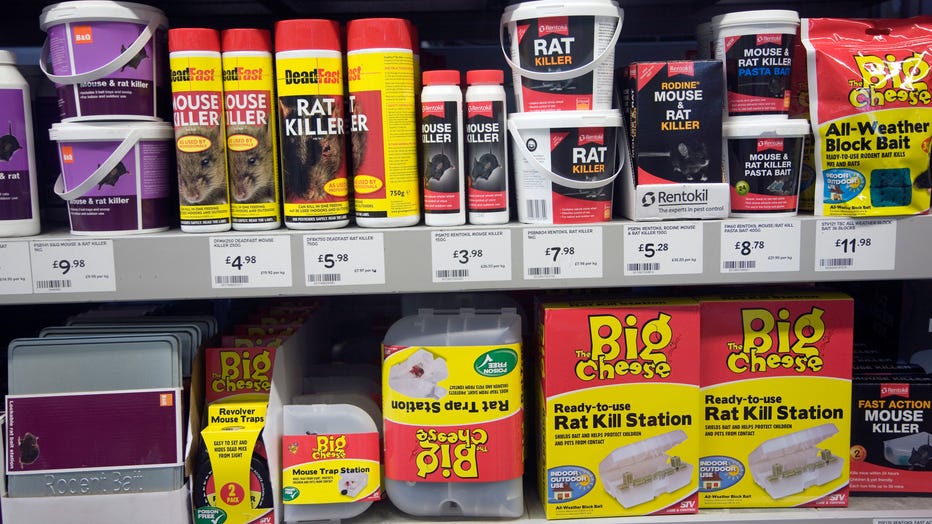
Rat killer poison products on shop shelf (Photo by: Geography Photos/Universal Images Group via Getty Images)
Mouse and rat poisons are exactly as they sound: they’re made to be deadly.
The more prevalent forms of rodent poison are bromethalin, cholecalciferol (vitamin D3) and anti-coagulant rodenticides. Bromethalin can cause spinal cord swelling and neurological issues, while small amounts of cholecalciferol can lead to elevated calcium and harm the kidneys, heart, lungs and gastrointestinal tract.
MORE: Experts recommend isolating dogs amid respiratory 'mystery illness'
Anti-coagulants can cause bleeding within two-to-seven days of ingesting, or after having chronic access to smaller amounts.
"Fortunately, there is an antidote to this class of toxin," the helpline says.
Anti-inflammatory medications
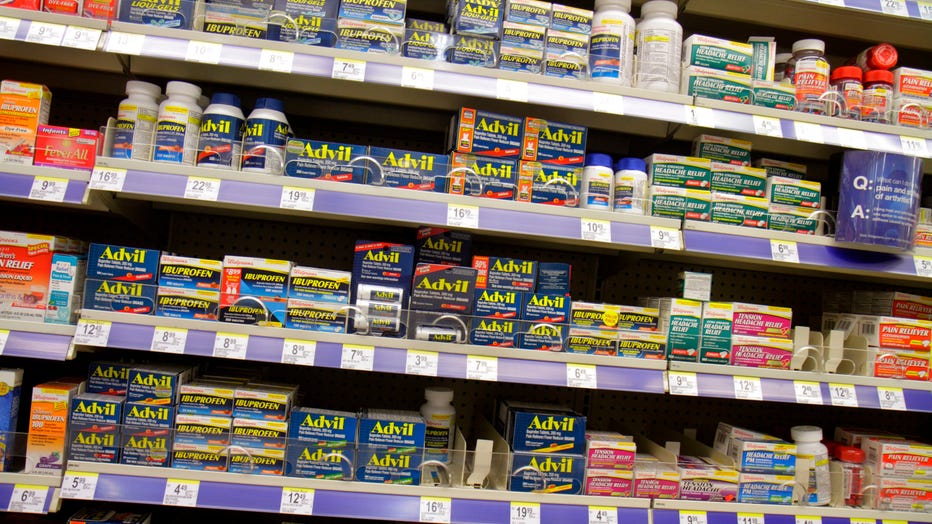
Pain killers for sale in Walgreens. (Photo by: Jeff Greenberg/Universal Images Group via Getty Images)
Medications like ibuprofen, naproxen, carprofen, diclofenac, meloxicam and more can be dangerous for pets.
"Dogs and cats can be very sensitive to these medications. They can easily develop stomach ulcers. At higher doses, they can also develop kidney and liver damage," the helpline says.
MORE: These are the most popular pet names of 2023, according to Rover
If your pet is in pain, call your vet before dispensing any medication.
Xylitol (Birch Sugar, Wood Sugar, Birch Bark Extract, Birch Sap)
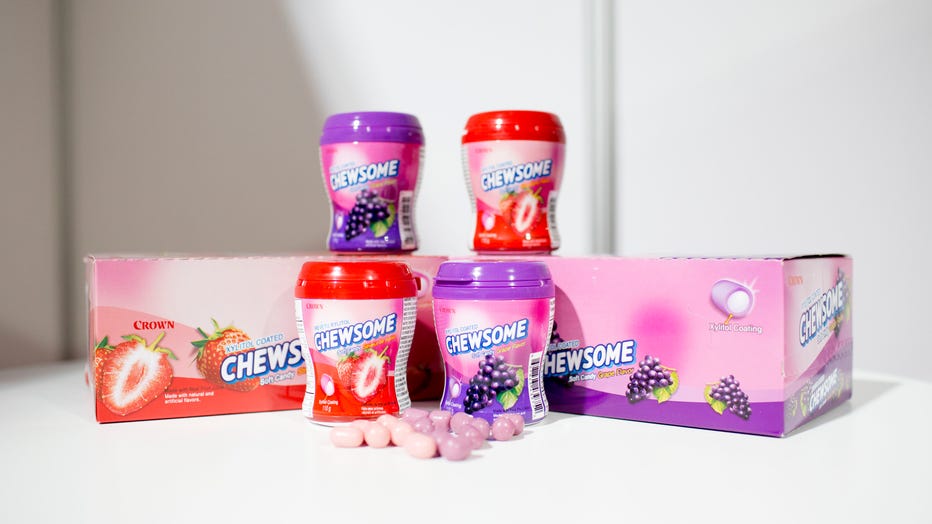
Xylitol Coated Chewsome soft candy (Carlos Osorio/Toronto Star via Getty Images)
Xylitol is an artificial sweetener found in lots of household items – toothpaste, mouthwash, floss, low-sugar candies, gums and other sugar free foods. Xylitol can be very harmful to dogs.
"Dogs are particularly sensitive to this ingredient. It can cause a rapid, life-threatening drop in blood sugar," the helpline says.
MORE: Watch: Cat named Loki photobombs marriage proposal
According to the helpline, if you think your dog’s blood sugar has dropped as a result of eating Xylitol, "rub corn syrup or honey on the dog’s gums and go immediately to a veterinary facility."
Higher doses of xylitol may cause severe liver damage.
Grapes and raisins
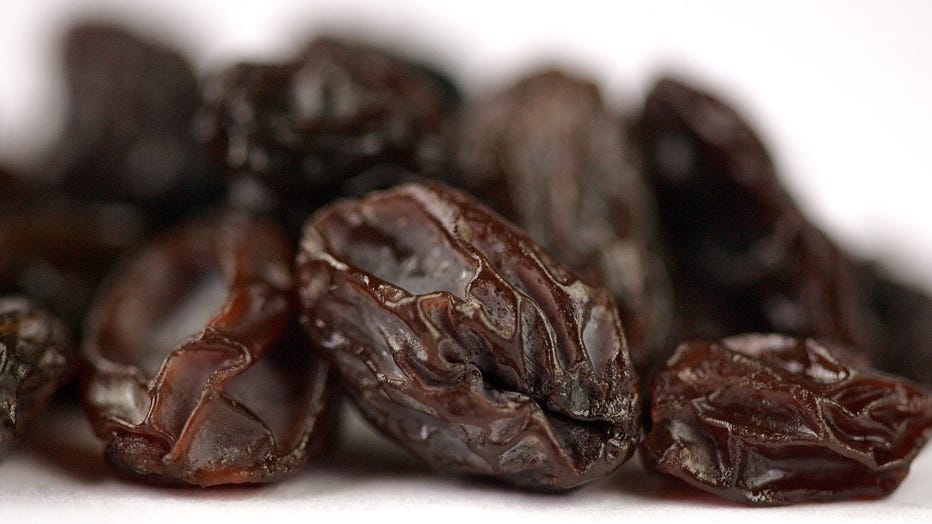
California seedless raisins are seen June 9, 2005 in Des Plaines, Illinois. (Photo Illustration by Tim Boyle/Getty Images)
Grapes and raisins can be bad for dogs, but exactly how bad is up for debate.
"What we know is that not all dogs are affected to the same degree. This makes the outcome hard to predict," the helpline says.
Dogs that are affected by the fruits may experience kidney failure, symptoms of which include nausea, vomiting and diarrhea.
Therefore, decontamination and close monitoring are vital.
Anti-depressants
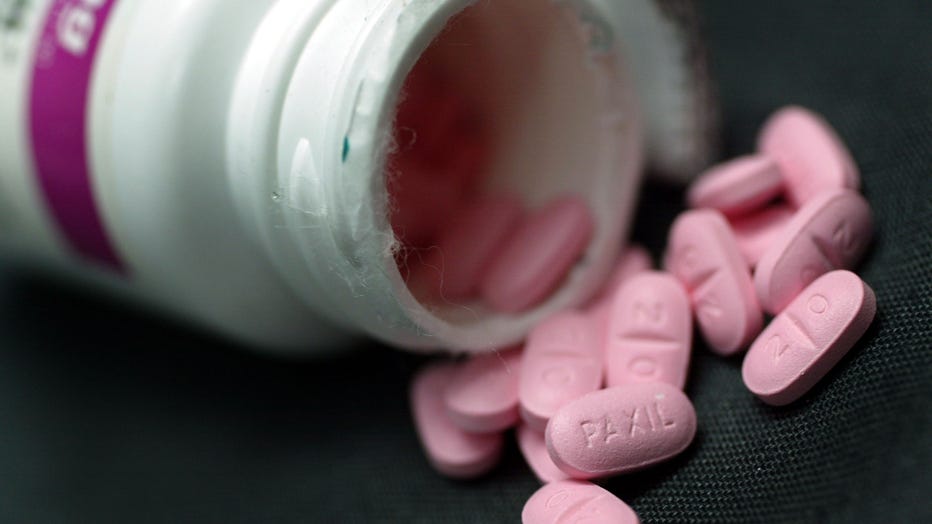
A bottle of anti-depressant pills (Photo Illustration by Joe Raedle/Getty Images)
People aren’t the only ones on SSRI/SSNRI anti-depressant medications. Pets are often prescribed them now, too, which leads to more risk of overdose.
"Low-dose overdose can lead to lethargy, which doesn’t usually need much therapy. Higher overdoses, however, can cause significant elevation in heart rate and blood pressure, tremors, seizures, and serotonin syndrome," the helpline says.
MORE: Frequently taking sleeping pills could increase risk of dementia, study says
Call your vet if you think your pet is overdosing.
Acetaminophen
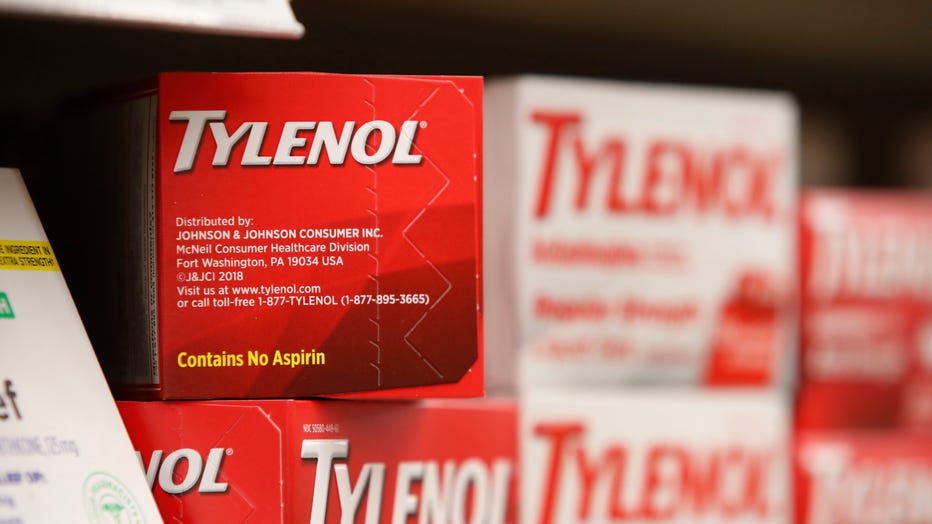
Boxes of Johnson & Johnson's Tylenol aspirin for sale at a pharmacy in Salt Lake City, Utah, U.S., on Thursday, Feb. 25, 2021. Photographer: George Frey/Bloomberg via Getty Images
Acetaminophen, the main ingredient in Tylenol, is a common household drug, but it should never be given to a dog or cat.
It can cause liver and kidney failure, along with other complications.
Vitamin D
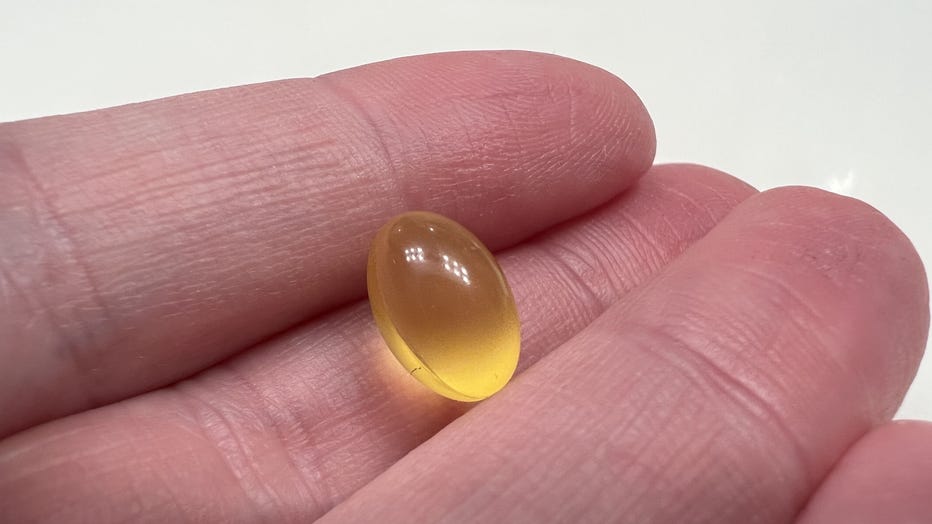
Person's hand holding a small Vitamin D pill or supplement, Lafayette, California, January 4, 2022. (Photo by Smith Collection/Gado/Getty Images)
Vitamin D is commonly found in vitamins and calcium supplements, but it can be problematic for pets.
"Too much calcium in the body can lead to mineralizing organs, which diminishes their function (kidneys, heart, lungs, intestines)," the helpline says.
Stimulant medications
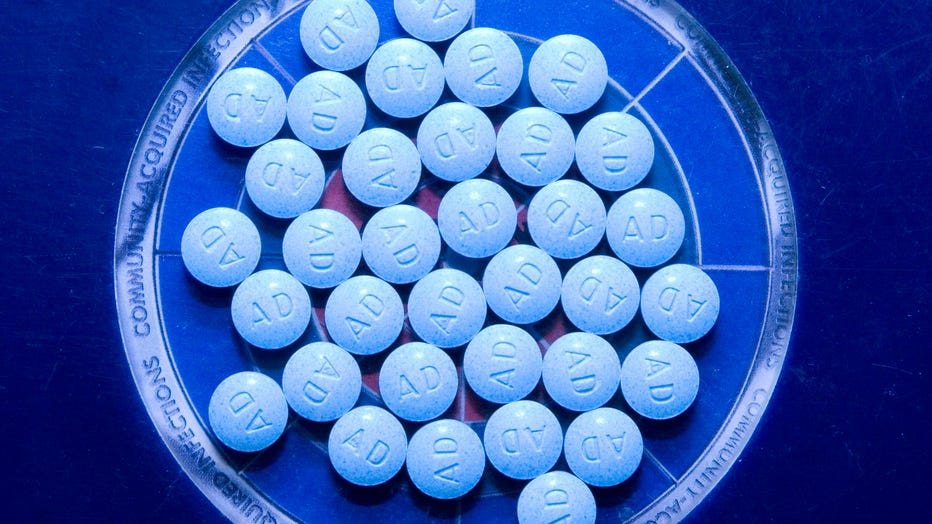
Ten milligram tablets of the Adderall(Photo by Jb Reed/Bloomberg via Getty Images)
ADD/ADHD treatments like amphetamine salts and methylphenidates are becoming increasingly more common in households. Not only do dogs and cats chew the bottles and find dropped pills on the floor, they’re also sometimes attracted to the scent of the pill.
The poisoning of your pet could be "very rapid" if they ingest one of these pills.
"As a stimulant, these medications can cause extreme cardiovascular and central nervous system stimulation. Aggressive care may be needed to treat these signs," the helpline says.
Fertilizers
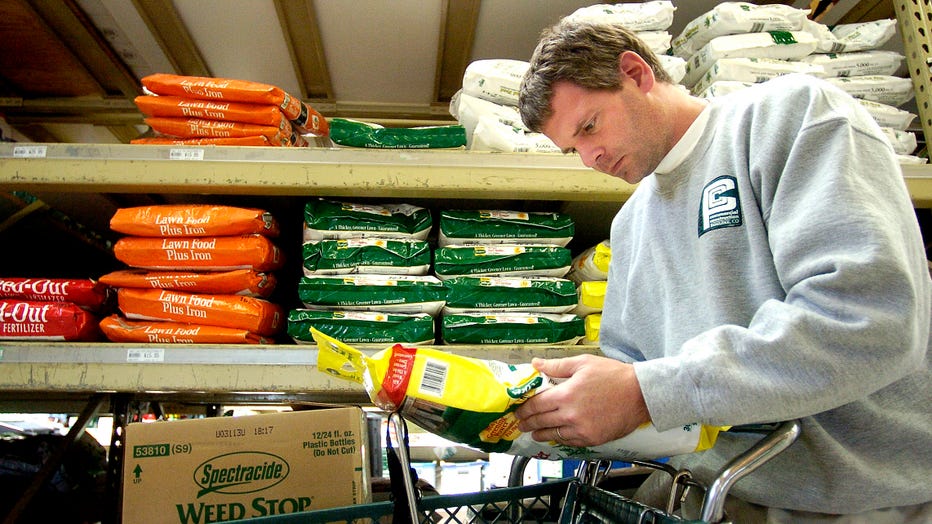
Lawn fertilizer on store shelves (Photo by Josh Lawton/Digital First Media/Boulder Daily Camera via Getty Images)
Although most pet exposure to fertilizers causes mild gastrointestinal problems, your pets could be at higher risk if there are additives that change the soil’s pH.
The helpline says organic fertilizers, including bone and bloodmeal, can cause more harm – including protracted vomiting and diarrhea, pancreatitis, and foreign body obstruction.

